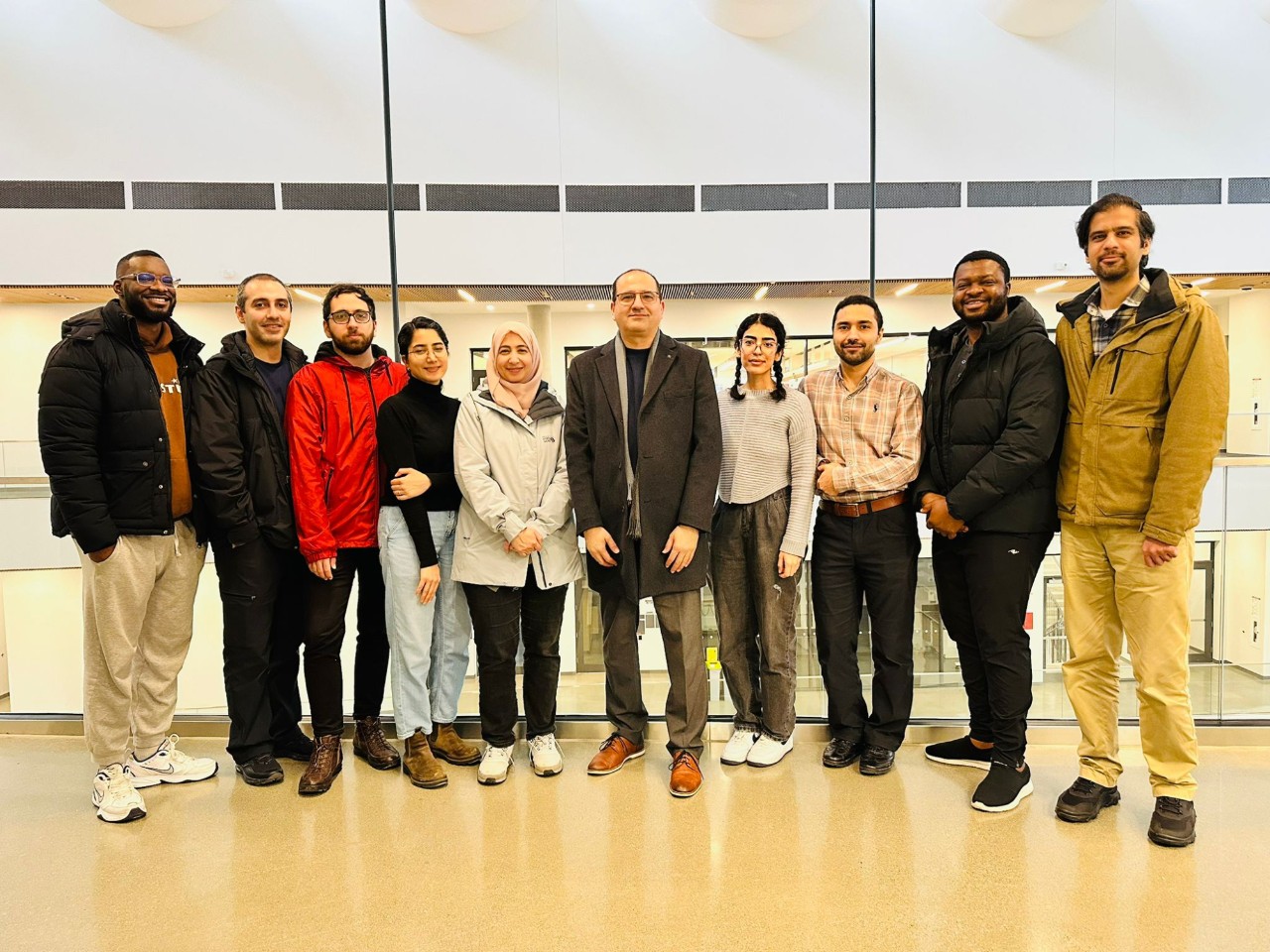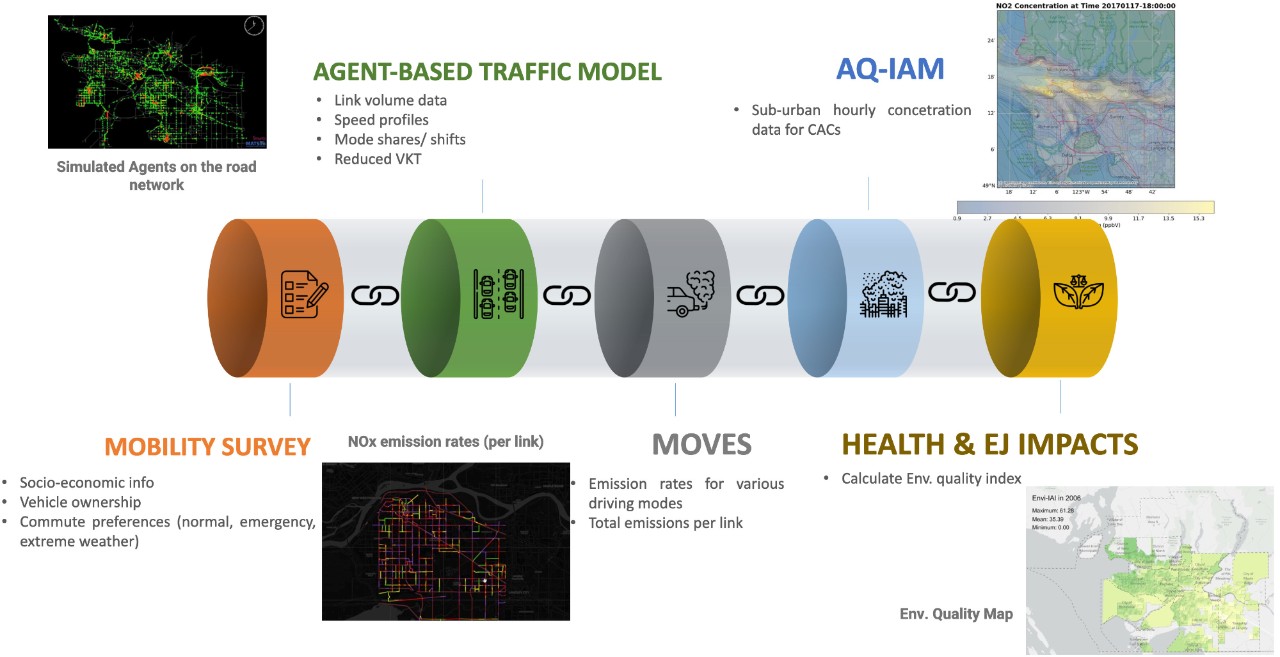Collaborative Research on Energy, Air Pollution, Transportation and Environment (CREATE)
New Research Positions are available at CREATE!
New research opportunities in alternative transportation and biomass burning energy, and emission evaluation are available at our research group. For more information, consult the Opportunities page on our website.
Background
Analysis of urban low-carbon and clean ground transportation is the core of my research at SFU. For the past few years, my research has focused on studying vehicle technologies to reduce toxic air pollution and GHGs in the urban transportation sector. Urban transportation accounts for 29% of total GHGs in the US and 24% of total GHGs in Canada in 2019. The government of British Columbia has an ambitious plan of reducing GHGs by 80% by 2050 from the baseline of 2007. In 2018, transportation accounted for 38% of GHGs in BC. In Metro Vancouver, 49% of smog-forming emissions come from the transportation sector (light-duty, heavy-duty, rail, ship, and vessel). The complex combination of transportation technologies, modes of transportation, fuels (both conventional and alternative) in interaction with the urban atmosphere makes it an interesting multidisciplinary research subject. Remote working, car sharing, carpooling, non-motorized transportation, low emission zones, and connected vehicles add more dimensions to the drivers of my research. I am interested in developing tools and using them to promote innovative decarbonization pathways for passenger and freight transportation in cities; sustainable pathways provide co-benefits and are reliable enough even at the time of climate change impacts such as floods, heat waves and wildfires.
Objectives and Methodology
The objective is to study the impact of ground transportation technologies on urban air quality and GHGs. It also provides insight and guidelines for future regulations, policies, and interventions. It develops an integrated solution using the best available transportation technologies to increase efficiency and reduce toxic emissions. The research's deliverable provides urban transportation pathway(s) towards zero emissions by utilizing hybridization, electrification, alternative fuels, and connected vehicle technologies.
We are interested in looking into the impact of fleet electrification and alternative carbon-free fuels. Mode switch from vehicles to public transit and active transportation, ride-sharing, bike-sharing, autonomous driving and connected vehicles are all included in the scope. The real question is how to capture those in a realistic world in our research tools using current and innovative modelling and data analytics tools.
A wide range of tools such as emission inventories, weather models, chemical transport models, and emission measurement experimental setup are used.
Research Areas
The main research areas are
Area I. Emission and GHG measurement, analysis, and understanding of urban transportation technologies in the context of thermo-fluid engineering (energy and emissions),
Area II. Modelling of the impact of the choice of technology on GHG emissions and urban atmosphere with consideration of urban carrying capacity, emission targets, and energy conversion, and
Area III. Evaluation of policies to provide guidelines to implement urban transportation technologies towards zero emissions
Contact Us
Email:
v_hosseini@sfu.ca
For general inquiries:
cr8lab@sfu.ca
Phone:
778-782-4376
Linkedin
Website coordinators:
Sara Asaad, Rozhin Ahmadi
Email:
sara_asaad@sfu.ca; rozhin_ahmadi@sfu.ca










